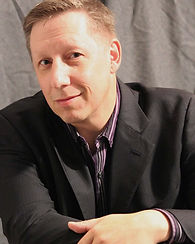MITCHELL GILLETT
STAGE DIRECTOR

ABOUT
Mitchell Gillett is an American director well known for his approach to multifaceted storytelling. Gillett’s most recent productions were the 2023 award-winning production of Ruddigore at the Buxton (UK) Opera House for the International Gilbert and Sullivan Festival. This was followed by the premiere of Andrew Ager’s The Mummy (the third in his Monster Tryptic) for New Lyra Opera in Ottawa, Ontario, in October. Other productions have included tours of Mozart’s The Magic Flute and Rossini’s The Barber of Seville for the Comic Opera Guild, and an adaptation of Victor Herbert’s Babes in Toyland for the holidays.
Previous seasons have included The Pirates of Penzance for the Croswell Opera House and the University of Michigan Gilbert and Sullivan Society (UMGASS), Gilbert and Sullivan’s Iolanthe for West Michigan Savoyards and UMGASS, and further Gilbert and Sullivan productions of The Yeomen of the Guard, Patience, The Sorcerer, The Gondoliers, Cox and Box, and Trial by Jury. Gillett has also acted as Assistant Director for Arbor Opera Theatre’s production of Mozart’s Le Nozze di Figaro and directed their opera workshops for their Studio and Emerging Artists Program. Mitchell has also developed several site-specific performances, including Ben Johnson’s Love Restor’d, for the Fete de la Rose D’or.
Classically trained as a tenor with Timothy Caldwell and George Shirley, he sang with such companies as Michigan Opera Theater (Detroit Opera), The Colorado Gilbert and Sullivan Festival, Southern Ohio Light Opera, and Arbor Opera Theater. Gillett's other roles in Offenbach, Lehar, Herbert, and comprimario roles in Carmen and La Bohème, have helped develop his technique of character building with his singers as they work in rehearsal.